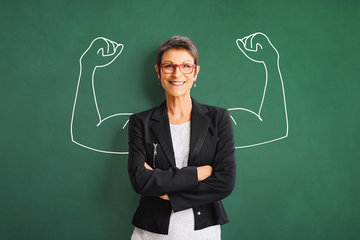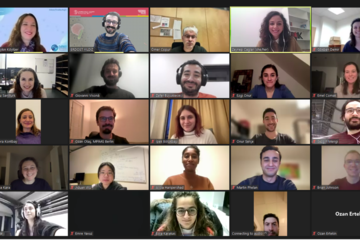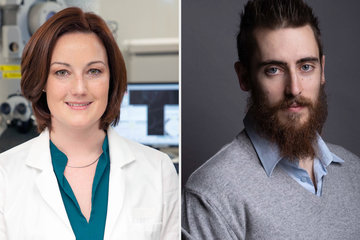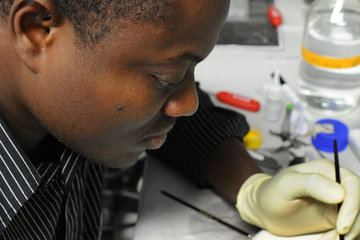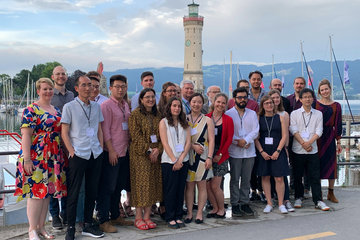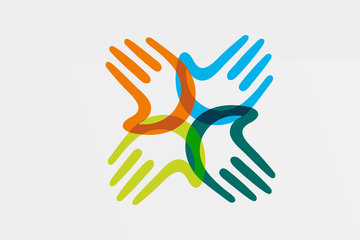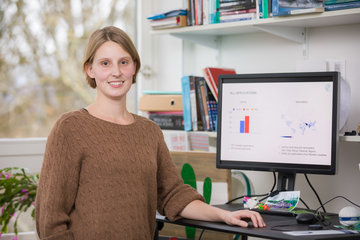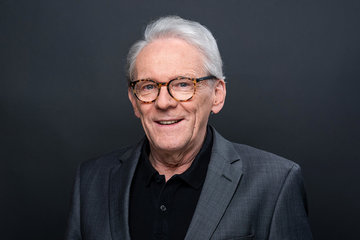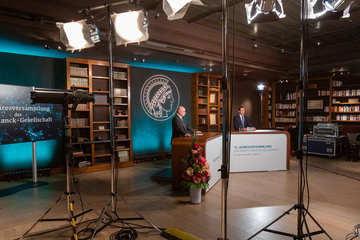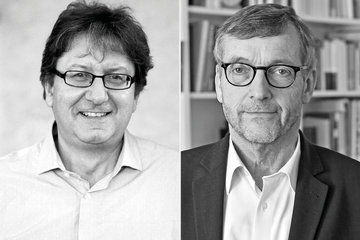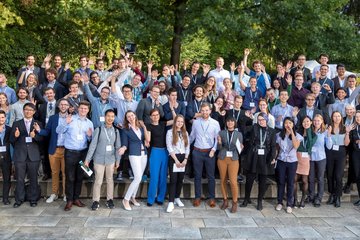“We need a cultural change to remain competitive”
Asifa Akhtar is Vice President of the Max Planck Society and head of the Max Planck Presidential Commission on Equal Opportunities. In this interview, she talks about her engagement for a cultural change towards more diversity and inclusion at the Max Planck Society. A plea to dare more diversity and inclusion.

Vice President Akhtar, what is the task of the Presidential Commission on “Equal Opportunities”?
The overall task is to shape the Max Planck Society’s equal opportunity and diversity strategy. In addition, we establish new focal points and priorities. It is also very important for us to help monitor existing programmes and initiatives and identify needs for adjustments and improvements. In this big sounding board, a broad range of people are participating – including representatives from our PhD students, postdocs, directors, staff, and also members of the administration. Thus, this committee brings together a wide variety of opinions that we can take into consideration as we move forward.
You just mentioned initiatives. Could you give us a few examples of programmes the committee has dealt with so far?
We’ve done several things. First of all, we work very closely together with the Planck Academy. Frauke Logermann, Lead Talent, Gender & Diversity Affairs, and Kerstin Dübner-Gee, who heads the Human Resources Development & Opportunities Department at the Max Planck Society, are the driving forces behind many of the activities. For example, they organized a digital conference on “Ethnic Diversity, Respect and Acceptance” in December last year – the first conference on this topic. This was absolutely fantastic. 82 from our 86 Institutes participated and discussed a variety of interesting subjects, such as ethnic diversity, anti-discrimination, micro-aggressions, unconscious biases and mental health.
Why are events like this so important? What was your main insight?
The overall sense of the conference was that it’s really time to address diversity and inclusion issues in the MPG and to make people aware of them. In the last one and half years since I took over the as the chairperson and expanded this committee, our immediate task has been to look at the discrepancy we have at every level in the MPG with regard to gender ratios. But of course, diversity means more than gender balance! In the upcoming meetings of the Presidential Commission, we will broaden the scope accordingly.
Speaking of gender balance: in 2021, the MPG decided to continue its commitment to increase the proportion of female scientists in leadership positions by one percentage point per year between 2021 and 2030. In addition, the MPG is expanding its efforts to increase the proportion of female scientists across the board to include the TVöD and early career researchers. Unfortunately, despite great efforts, the MPG was unable to meet its self-commitment targets in 2021 …
I’ve heard comments like “Hiring women compromises excellence” … and as long as we have this kind of mindset, we’re not going to move forward. Luckily, this attitude is not shared by the majority, so I remain very optimistic for the future! In certain defined fields, you may not have a high representation of women. But the Harnack principle should enable us to achieve our goals by looking broadly. The MPG is about people, not programmes! There are definitely outstanding women out there. We should do everything to recruit them. Moreover, it is not just about enriching the Society with the highest-caliber international scientists. It is also about making them feel welcome when they join the Society. We need a cultural change in the MPG to remain competitive. I know that it’s not trivial as there are many complex issues that need to be addressed. However, it’s a challenge that we definitely need to be tackling right now!
How does the committee try to deal with this topic?
I started a dialogue series called “Dialogue with Asifa”. I met with female directors of the three Sections to get an under-standing of their perspectives. These are the female leaders, the top scientists, we have hired: who could be better suited to give us insights, generate ideas and help us towards the modernization process from within the MPG?
What was the key result of these dialogues?
One major finding was that the women I spoke with feel isolated in the MPG. And this sentiment is not just felt at the directors’ level, but rather throughout the MPG. I think this feeling of isolation has a wider connotation. And it is compounded with the fact that the MPG is very international. It’s not just about being male or female, but also about coming into an Institute from abroad, which is not always easy. The sense of isolation that we see also arises from the fact that the Institutes are separated, and the Sections are yet again separated. As a result of some of the discussions I had in the dialogues, but also in the Presidential Committee, we have set up the “Athena” network. At least in the beginning, the network will be composed of directors (men and women) who want to support their peers in the Society by participating as Athena ambassadors. This new network is an intersectional network. We have representatives from all the three Sections. I hope this network will be a catalyst for us to come closer between Sections and gain strength from each other! Hopefully, in the long run, we can also integrate junior Group Leaders into this network.
You speak to people from various levels. Do you have a focal group within your strategy?

No, I believe that it has to be an interconnected approach. You cannot just address the problems of the PhD students without making the directors aware of what the problems are. And directors and Group Leaders have their own pressures, too. You need to make everybody self-reflect. And this is what these discussions do. Communication is the key here. My task in this commission is not only to head it, but also to give people the courage to move forward and make them realize that their voice can make a difference. Every career stage has a slightly different need. That’s why in the last one and a half years in this role, I’ve talked to those different groups – PhD students, postdocs, Group Leaders, directors. In the next step, I’ll talk to the heads of administration. Because communication between administration and science is also very essential. Again, one needs to hear all sides to be able to move forward.
In the 2019 MPG-wide Work Culture Survey, almost one in two of our scientists from EU countries reported feeling ignored or excluded from time to time. One in three scientists from non-EU countries shared this feeling.
In addition, the results of last year's PhD Net survey showed that one in four PhD students have experienced some kind of discrimination, with their nationality being cited as the biggest point of discrimination, closely followed by gender identity and ethnicity … Yes, this feeling of unhappiness has also been revealed in many of my personal discussions with scientists within the Society. The MPG is extremely successful and its members represent the world scientific elite. However, despite continued external validation of our scientific success, internally a lack of appreciation is felt in every segment of the MPG. This makes me feel really sad. And it tells me that money cannot buy happiness. There is much more to that. That’s why I find that the leadership has to be approachable. These are very important emotions and we need to take care of them if we want to have an MPG that remains healthy, full of life and energy.
What could a welcoming culture look like?
From my own experience, I know that I’m the most creative, when I’m happy. If you feel that you’re not appreciated, you don’t reach your full potential. When employees are unhappy, it’s usually not just about one thing, but a series of things – and that can be little things. There is this English saying “The straw that broke the camel’s back”. We need to have an attitude of not giving up. The problem is that we don’t frequently have the environment where someone will pick you up when you fall and tell you: “Don’t worry, I’m behind you, keep going.” Very few people do that. You need this at the moment when you’re the weakest. Many young female scientists don’t get this support, for example. They have a sense of insecurity about starting a family or not. If the environment is conservative, the choice to have a family can feel like you’re compromising. But having a family should never have to be a compromise. You should be able to do both things. What is important is that you enable people to be happy with the task at hand. To be happy with what they want to achieve. Frequently, women want to have a career, but they take a step back. This is the time when we need to encourage them and give them the support, infrastructure and all the mentoring that they need to go forward. What we can do in the MPG is to create an atmosphere in which everybody feels heard and appreciated. This would be a major step forward for us.
Currently, there are about 14 local diversity groups at various Institutes. Why are they so important?
What a Presidential Commission can do, and what I can do, is to put an emphasis on what is important so that people are motivated and see that we take their concerns seriously. However, with 86 Institutes there is a huge heterogeneity in the way people are treated and what the working culture looks like. We can only bring about change if we have local initiatives that are working together with us. They make all the difference.
You became Vice President of the Biology and Medicine Section in 2020 – as the first woman from abroad in the role, and also the youngest. Have you experienced discrimination in your career?
The discrimination doesn’t come in one big event to you. It’s about little things that happen that make you wonder. Although I have managed to achieve many things in my scientific career, it has not always been rosy for me. You have to fight at every step of the way. I find it a blessing that I have been able to have both: a family and a career. That counterbalances the hardships that you may experience at work. I do understand that I have a huge responsibility on my shoulders. When I was growing up, I didn’t have many role models like this. The times were different. What is really great at the end of a tough day, is to know that even if your paper doesn’t get published, your kids still love you!
How did you deal with the discrimination that you came across?
One of my strengths is that I don’t dwell on disappointments. Instead, I look forward to the new challenge ahead. You have to seize the moment. There are many times when I had setbacks, but I get up, try to see where my strengths are and move forward with those. Every time you’re given a new task or a new responsibility, I embrace the challenge. Admittedly, the fact that I frequently feel that I’m fighting an uphill struggle when I talk about internationalization or gender diversity can feel very tiring at times. Not because I have no enthusiasm for this topic, but because some of the discussions we have make it obvious that we’re falling behind. But if my energy can motivate a few people that’s better than not doing it at all. I always say: drop by drop makes the ocean. So, if the little bit I can do contributes towards the bigger picture of the Max Planck Society, that’s a job well done. Again, it’s not a task for just one person alone. All of us have to contribute towards this positive momentum we are going through right now in the MPG. For me, a diverse Max Planck Society is a more competitive and more enriched one. And also a more forward-looking organization. We need to nurture the community from within and I am convinced that we can make it happen! Where there is a will, there is a way…


